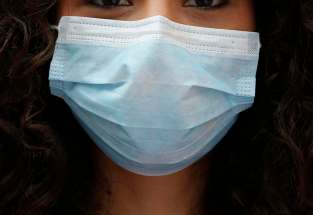Chinese disease response forceful but brutal
Read this article for free:
or
Already have an account? Log in here »
To continue reading, please subscribe:
Monthly Digital Subscription
$0 for the first 4 weeks*
- Enjoy unlimited reading on winnipegfreepress.com
- Read the E-Edition, our digital replica newspaper
- Access News Break, our award-winning app
- Play interactive puzzles
*No charge for 4 weeks then price increases to the regular rate of $19.00 plus GST every four weeks. Offer available to new and qualified returning subscribers only. Cancel any time.
Monthly Digital Subscription
$4.75/week*
- Enjoy unlimited reading on winnipegfreepress.com
- Read the E-Edition, our digital replica newspaper
- Access News Break, our award-winning app
- Play interactive puzzles
*Billed as $19 plus GST every four weeks. Cancel any time.
To continue reading, please subscribe:
Add Free Press access to your Brandon Sun subscription for only an additional
$1 for the first 4 weeks*
*Your next subscription payment will increase by $1.00 and you will be charged $16.99 plus GST for four weeks. After four weeks, your payment will increase to $23.99 plus GST every four weeks.
Read unlimited articles for free today:
or
Already have an account? Log in here »
Hey there, time traveller!
This article was published 27/01/2020 (2142 days ago), so information in it may no longer be current.
China clearly wants to get it right this time. President Xi Jinping and his government have taken direct control of measures to stamp out the coronavirus epidemic that began in Wuhan about Dec. 1. Residents of Wuhan and 14 other cities of Hubei province are now blocked from leaving their cities. The New Year shut-down of schools and businesses throughout China has been prolonged by a week.
China was severely criticized in 2003 when it was slow to announce the appearance of a comparable virus and slow to act against the spread of the resulting Severe Acute Respiratory Syndrome (SARS). This time, the Chinese authorities have been much more generous with the information and much more muscular with the control measures.
Muscular, but not necessarily effective. By bottling up 60 million people, sick and healthy alike, in the 15 most affected cities, China is treating those 15 cities as immense isolation wards and condemning those 60 million people to exposure to the virus in the hope of protecting people in other parts of China.
The benefit to people in other Chinese provinces is unclear, since cases of coronavirus infection have already been reported in all provinces except Tibet. The barn door has now been locked but the horses are long gone.
The danger to people in the isolation-ward cities is more evident. They are required to stick around where the disease is raging and accept the risk that they, too, will be infected. The risk that a significant proportion of 60 million people will get sick is evident. This could be called public-health management with Chinese Communist Party characteristics.
It is prudent to prevent infected people from travelling because they could endanger both their fellow passengers and people they would contact at their destination. By preventing everyone from leaving, however, the Chinese authorities are probably preventing healthy people from taking prudent steps of their own to protect themselves from infection. Legitimate complaints may be raised by people who were free of infection before the central government imposed the travel ban.
The travel ban is also hard on doctors and nurses in the affected cities, who already bear a crushing burden of triage and treatment. Let people from Hubei travel if they seem healthy, then teach the health authorities in other cities to keep an eye on them and care for them if they start to show symptoms. This will distribute the burden more widely through the Chinese health-care system.

As China plays a larger and larger role on the world stage, it grows steadily more important for Canadians to understand what makes China tick. In the present case, the masters of China have taken dramatic steps apparently aimed at confining the coronavirus mainly within one province. The travel ban may, however, be more dramatic than effective, and it may prevent people of Hubei province from protecting themselves.
These measures may also be aimed in part at showing that President Xi Jinping, his Communist Party and his government are alert, forceful and decisive.
Canadians should assess China’s coronavirus management by how many people are infected, how many die and how much economic and social damage is inflicted by the disease and by the government’s preventive measures. We should not be overly impressed by a travel ban that seems more brutal than useful.





















